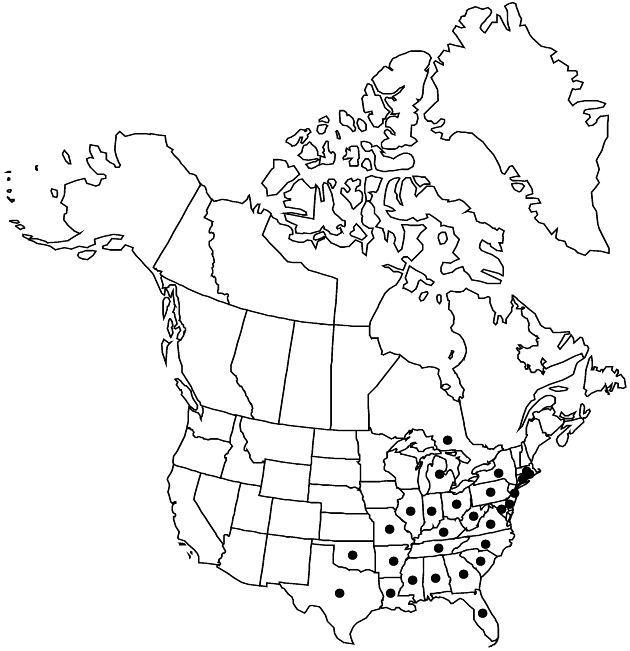familyAsteraceae
genusSolidago
sectionSolidago sect. Solidago
subsectionSolidago subsect. Venosae
speciesSolidago rugosa
subspeciesSolidago rugosa subsp. aspera
varietySolidago rugosa var. aspera
Solidago rugosa var. aspera
Rhodora 17: 7. 1915.
Basionym: Solidago aspera Aiton Hort. Kew. 3: 212. 1789
Revision as of 18:42, 24 September 2019 by FNA>Volume Importer
Herbage moderately to densely hairy. Distal cauline leaf blades lanceolate to elliptic, not much reduced distally. Heads in wide arrays, usually with elongate proximal branches greatly exceeding subtending leaves. Rays florets 5–10. 2n = 18, 36.
Phenology: Flowering Aug–Nov.
Habitat: Sandy, silty, and clay soils, fields, thickets, edges of woods, roadsides, ditches
Elevation: 0–1200+ m
Distribution

Ont., Ala., Ark., Conn., Del., Fla., Ga., Ill., Ind., Ky., La., Md., Mass., Mich., Miss., Mo., N.J., N.Y., N.C., Ohio, Okla., Pa., R.I., S.C., Tenn., Tex., Va., W.Va.
Discussion
Variety aspera is the common race of the species in the southeastern United States. It also occurs infrequently further north to Michigan and Massachusetts. It is most commonly tetraploid, with diploids also occurring through the range.
Selected References
None.
Lower Taxa
None.